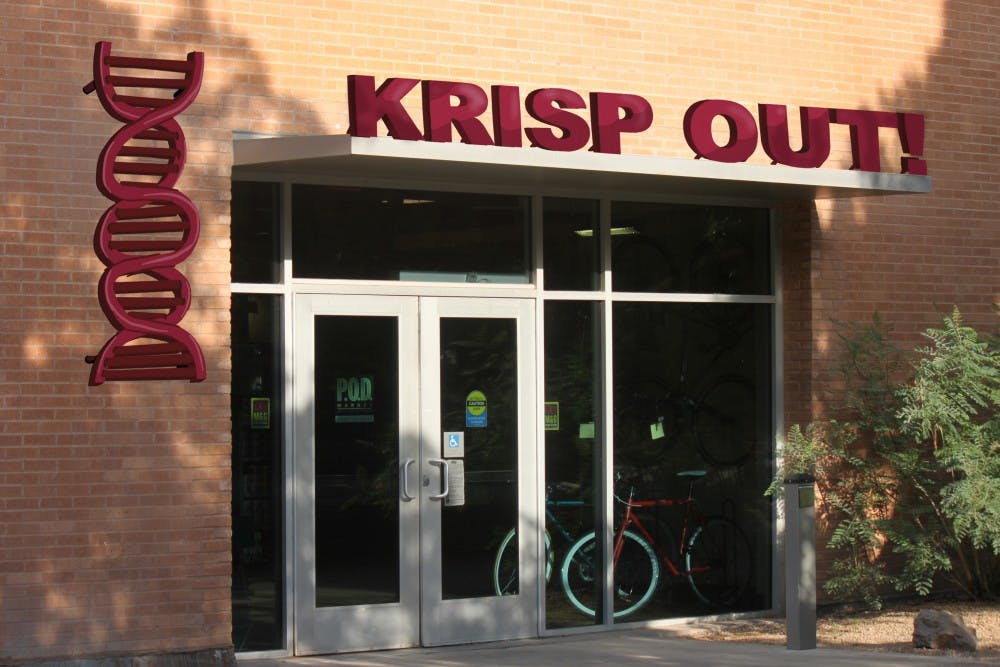Do you grab a cup of coffee in the Memorial Union on your way to class? What about some pre-packaged sushi for lunch when you’re short on time?
Many students might not know that all the businesses on the Tempe campus are franchised by the food, facilities and uniform service provider Aramark. And you probably wouldn’t have guessed the new Aramark business already available within the halls of the Memorial Union: on-demand CRISPR gene editing.
Students can now stop by a small walk-in clinic to receive university-sanctioned gene-editing therapy through this remarkable new service.
"I think this thing was a great idea," finance junior Jorge Romero said. "I walked in to get my IQ boosted five or six points before a test. It was a super quick procedure. I left with new genes in less than 30 minutes!"
Romero, whose legs now face the wrong direction, said he passed his algebra exam with flying colors but pointed out that no longer being able to walk is an opportunity cost anyone using the service ought to consider.
The clinic is part of a national chain called "Krisp Out" that started last year. In its early days, Krisp Out installed clinics in strip malls and shopping centers. Due to safety concerns, however, the corporation turned its sights toward a younger market: university campuses.
Romero is not the only one to report a success story from using Krisp Out. Many other ASU students have utilized the service for on-the-go gene edits.
Psychology sophomore Laura Draven said she is very satisfied with her Krisp Out experience.
"I was amazed at how they could make the bridge of my nose more flat in just a few minutes," Draven said. "It’s something I’ve struggled with my whole life, and now I’m finally satisfied when I look in the mirror."
Draven, who at the time she was interviewed could no longer speak English, had to hire a team of translators to interpret what linguistic experts called a "bizarre hybrid of Cantonese and Somali." Though she tried her best, Draven was no longer able to continue her university education. But she said her spirits are none the lower for it.
"And look at that: I learned two languages in the process," she said with enthusiasm. "I wouldn’t describe it as a ‘side effect.’ That just sounds super negative. I call it extra bang for your buck."
The Stale Mess cannot confirm the absolute accuracy to which Laura Draven's words have been translated, and her testimony should not be used or quoted by proponents of on-demand gene-editing technologies.
Editor’s note: The opinions presented in this column are the author’s and do not imply any endorsement from The State Press or its editors.
Reach the columnist at parker.shea@asu.edu or follow @laconicshamanic on Twitter.
Like The State Press on Facebook and follow @statepress on Twitter.




